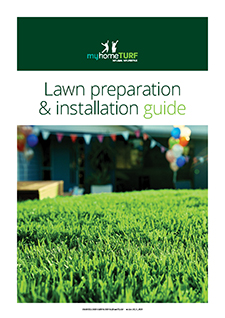7 Common Weeds in Buffalo Grass
Weeds in Buffalo lawns can quickly turn your dream lawn into a nightmare. For Australian homeowners, tackling these invasive plants is essential for preserving the beauty and ...

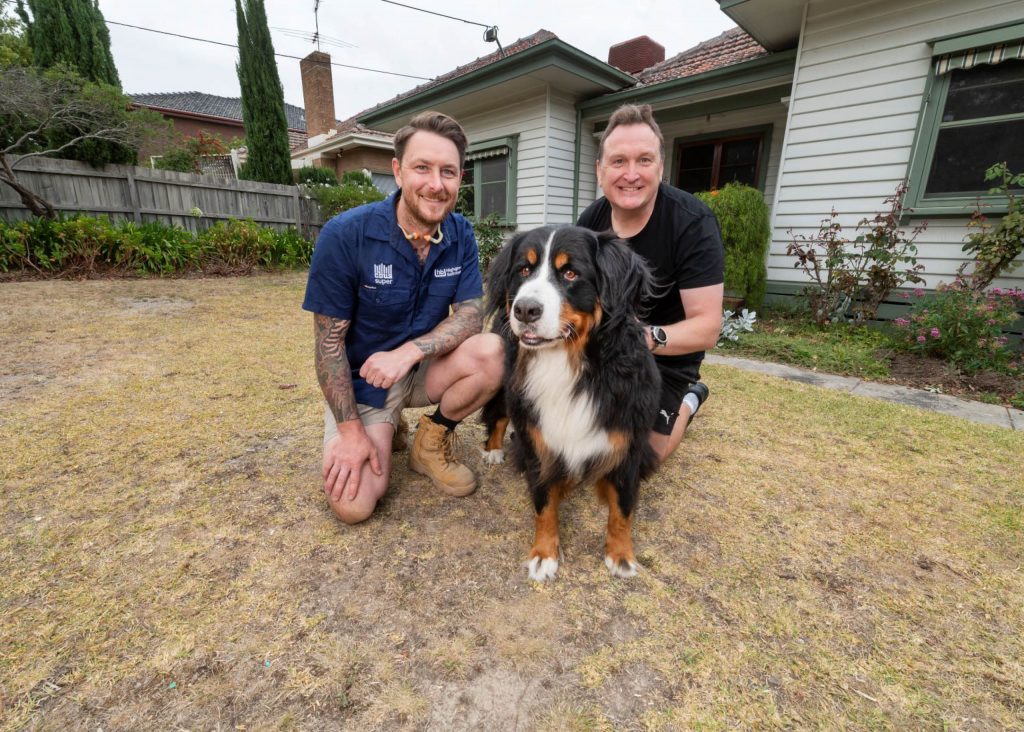 myhomeTURF has graced your screens on the new DIY series – DVine Living – hosted by former “The Block” favourite Dale Vine.
myhomeTURF has graced your screens on the new DIY series – DVine Living – hosted by former “The Block” favourite Dale Vine.
Over four weeks, the myhomeTURF team and Dale, himself a landscaper, designed and assisted in delivering a five-minute TV segment outlining the whole DIY lawn process from start to finish at four different Melbourne locations.
Job 2 is a house where homeowner Aaron (pictured above right) offers a great challenge to Dale and the team with ‘spicing’ up the look of his home with new lawn to increase it’s overall value.
Job 2 explains how Dale works homeowner with Aaron (pictured above right) an eye-catching new lawn improves the overall presentation and value of a Melbourne home – making it “immensely” more sellable.
Dale Vine was onsite at Box Hill North in Melbourne, with the team from myhomeTURF, where he planned to help a couple who were keen to improve the overall presentation and value of their home.
 The post war weather board home is very typical of many from this period in Melbourne built during the late 1940s and 50s.
The post war weather board home is very typical of many from this period in Melbourne built during the late 1940s and 50s.
It’s a well-documented fact that adding a new lawn is one of the smartest ways to increase the appeal and therefore the value of your home.
According to real estate agents turf makes the house immensely more sellable.
Two weeks ago Aaron and Helen – the homeowners – completed the first step which is to completely spray out all the old grass and weeds.
It is then a matter of getting rid of the top old lawn layer and preparing the soil for the new turf.
For this we have hired a Sod Cutter and a Rotary Hoe.
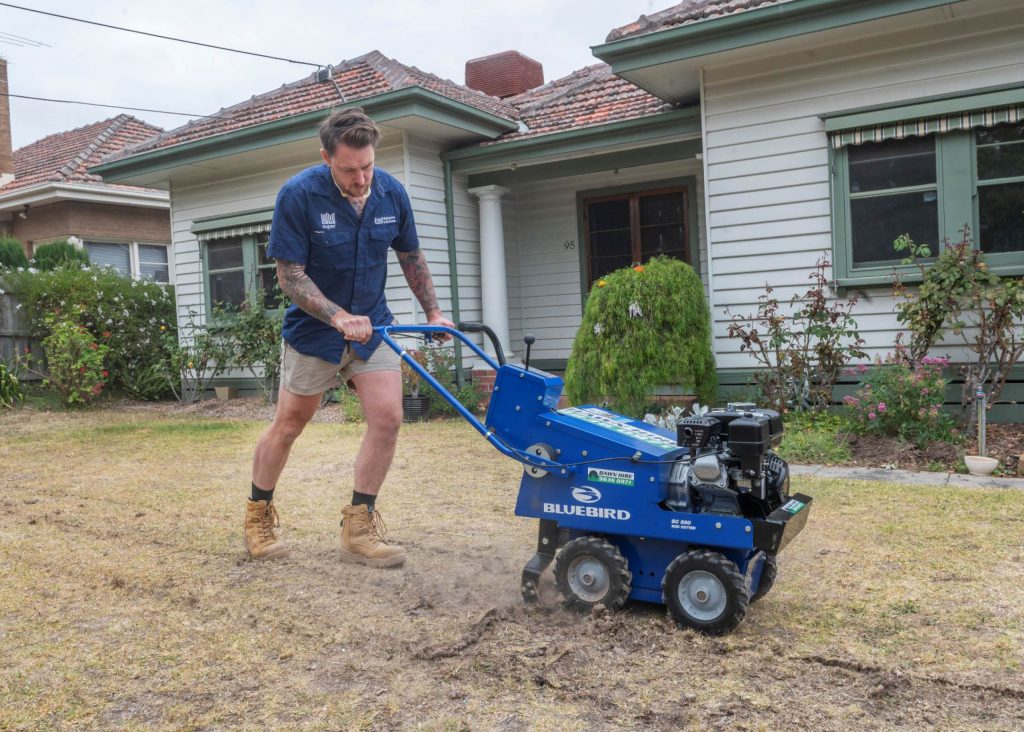 A Sod Cutter is the easiest way for DIY homeowners to effectively remove the old grass and weed matter.
A Sod Cutter is the easiest way for DIY homeowners to effectively remove the old grass and weed matter.
“It’s going to also help us level the site in preparation for the new lawn,” Dale explained.
The Rotary Hoe will break-up the subsoil allowing us to aerate and decompact the area.
“This is before putting down some new topsoil to lay the turf on,” he added.
“For topsoil I recommend a good lawn mix which is something all garden centres can supply as turf underlay.
“We’ll also add gypsum which helps improve the soil structure and aid water penetration.”
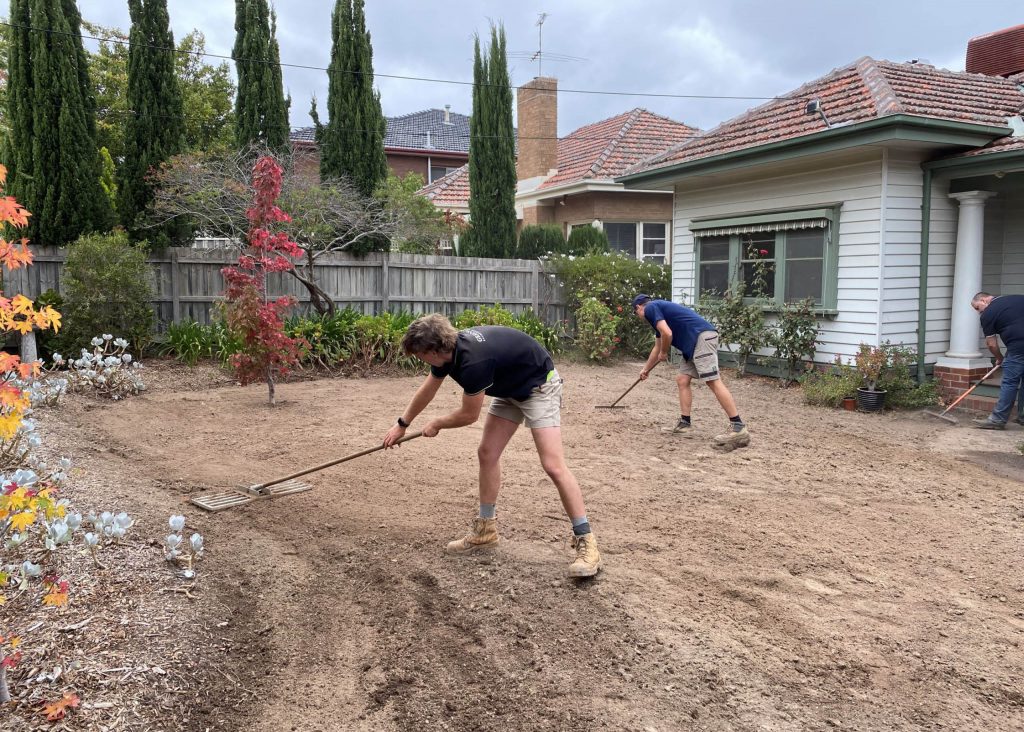 Dale applied an Under Turf Starter Fertiliser and Water Crystals to help the soil retain any water and provide the necessary nutrients for the roots to grow into.
Dale applied an Under Turf Starter Fertiliser and Water Crystals to help the soil retain any water and provide the necessary nutrients for the roots to grow into.
Under Turf Starter Fertiliser comes in 2 handy sizes 900gm for the smaller yard or 4kg for a more sizeable area.
You are then ready to lay your new lawn!
According to homeowner Aaron: “We chose a myhomeTURF variety because we have a family of two active boys and a dog Pepper, so we needed something that was hard wearing, low maintenance and looked good as well as added value to our home.
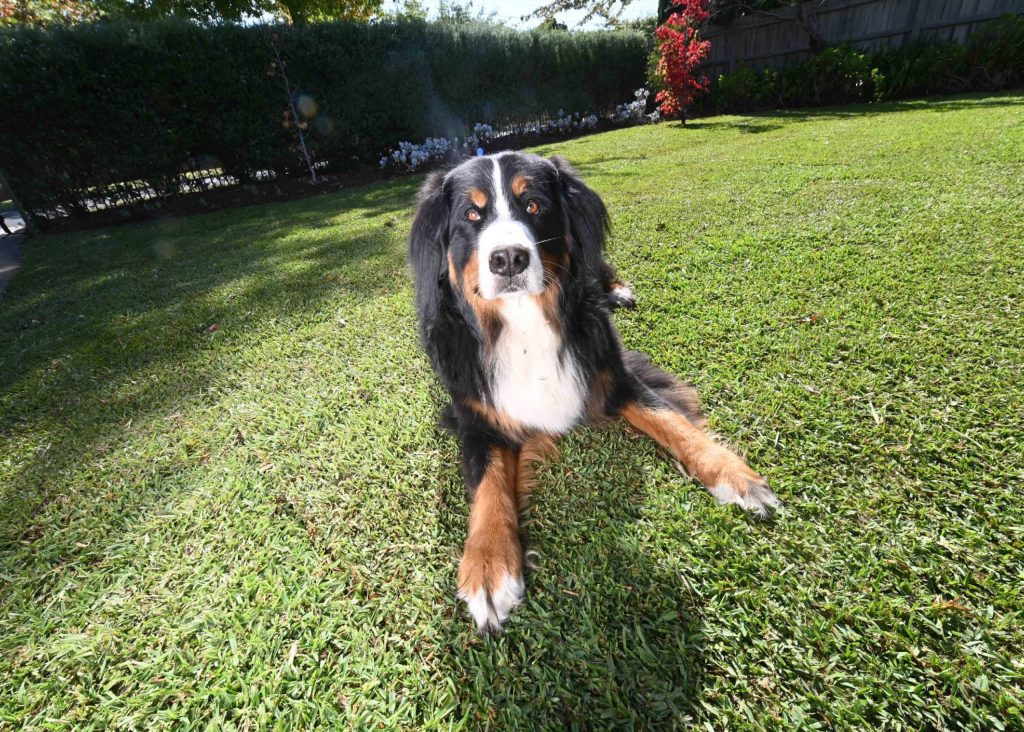 When we first brought this house it was the new lawn in the backyard that really sold it to us!
When we first brought this house it was the new lawn in the backyard that really sold it to us!
We really haven’t touched the front lawn and we think it is time to start doing some renovations.
So, after costing out the project and determining how easy it was to DIY our own lawn we got started.
We knew we wanted a turf that could withstand dogs and kids as well as cope with some sort of shade.
But most importantly have a great green colour, be low in maintenance and water efficient.
As Helen and Aaron have a well-used front yard – dogs and kids – Dale recommend myhomeTURF’s Palmetto Buffalo.
Palmetto is the biggest selling buffalo in the World, and there is a reason for that – it is low maintenance, hard wearing and has very good shade tolerance.
Just remember the one thing you have to plan ahead for is ordering your turf – usually allow about a week from when you contact your supplier to when you need your turf.
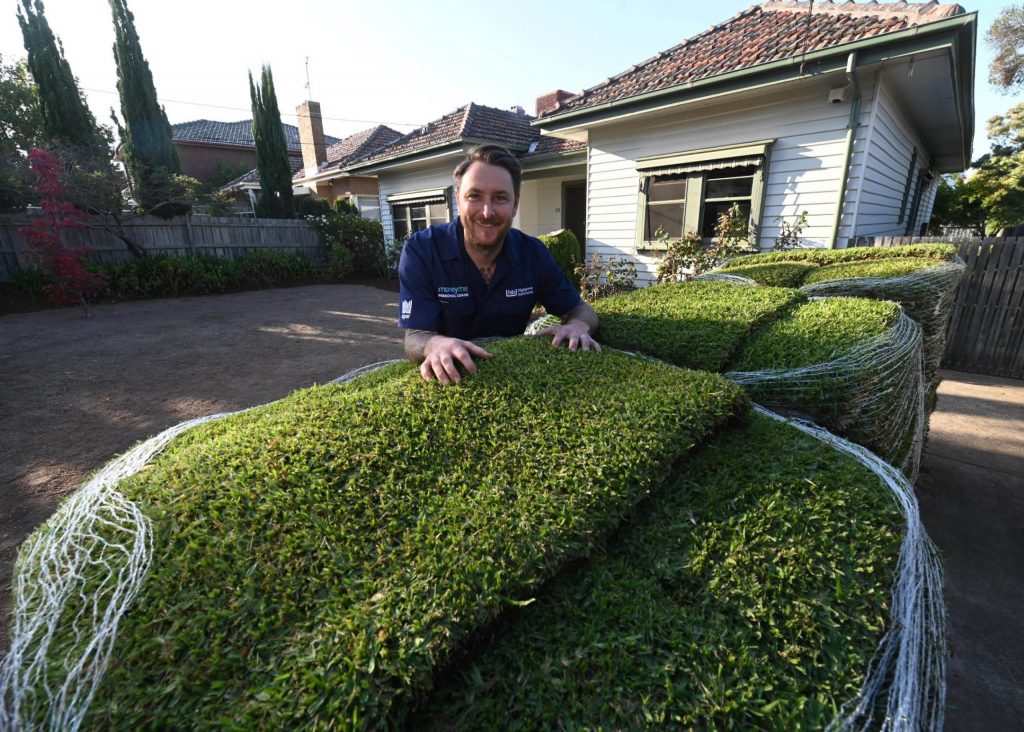 Palmetto is a soft leaf Buffalo turf that is water efficient and requires less maintenance than other Buffalo varieties.
Palmetto is a soft leaf Buffalo turf that is water efficient and requires less maintenance than other Buffalo varieties.
Studies have shown Palmetto requires 14.3 % less mowing than Sir Walter and 7.7% less mowing than Shademaster Buffalo.
With an excellent green colour throughout the year, including autumn and winter in most regions, Palmetto Buffalo can outcompete weeds thanks to its dense growth habits.
Palmetto is well-suited for most parts of Australia including much of Queensland, New South Wales, ACT, Victoria, South Australia and Western Australia.
It can be established year-round except in cold climates where it is better to lay your grass during warmer seasons like spring and summer.
And you can expect to pay between $10-15 a square metre for it.
Dale and the myhomeTURF team thanked Advance Turf for suppling Aaron and Helen with the sensational, premium quality Palmetto Buffalo.
Let’s hear from real estate agent – Bronwyn Lucas (picture below) from Ray White
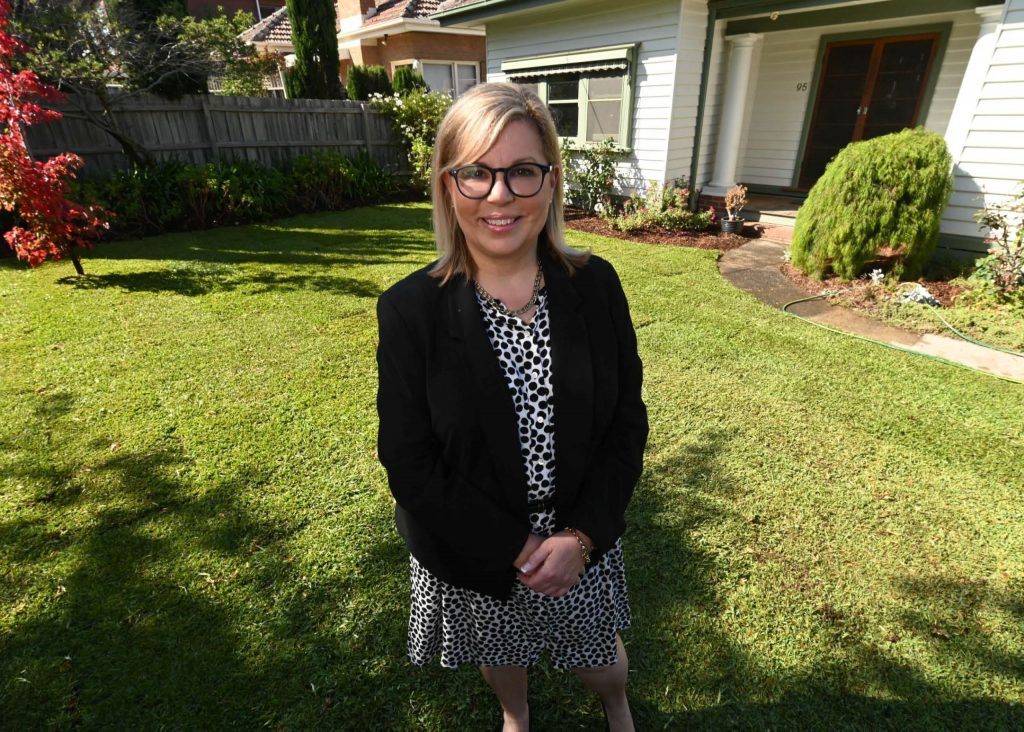 As a real estate agent, I can tell you that it is important for your home to make good first impressions with the buyers.
As a real estate agent, I can tell you that it is important for your home to make good first impressions with the buyers.
To increase the value of your property it is great to install new turf and fresh garden coverage which this Box Hill North property received.
It’s important to look for improvements you can make to your home that are cost effective and deliver a good return. Adding lawn is a no-brainer, it’s a quick and easy renovation that adds value to your home and most importantly attracts more buyers.
According to real estate agents, attractive landscaping can increase your home’s sale price by anything from five per cent to 20 per cent.
Now remember – turf is a living plant that has been cut fresh from the farm to give you an instant green lawn.
BUT once it arrives at your home, we need to give it the best opportunity to thrive by getting it laid as soon as possible.
Dales said as a rule of thumb, always lay your turf on the day you receive it.
“Now, a lot of people get excited about watering their lawn as soon as it arrives, just hold off on watering until you have completely laid all the new turf and then give it a really good soak,” he added.
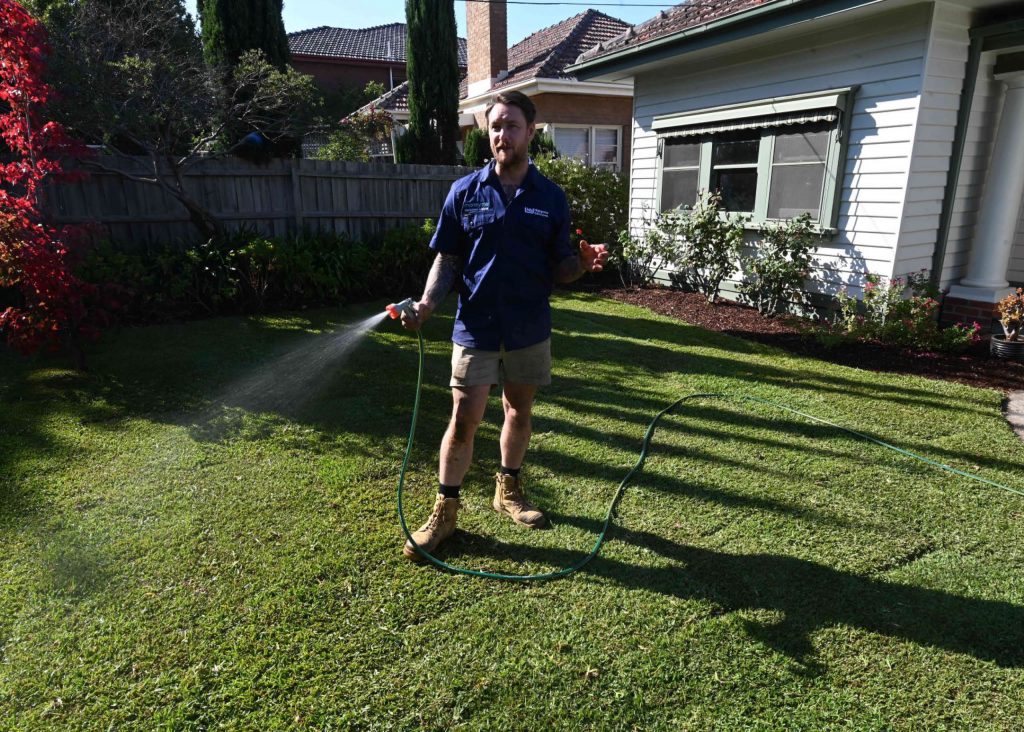 Before starting your watering regime, you can roll the lawn.
Before starting your watering regime, you can roll the lawn.
“We use a roller to push and embed the new turf into the soil and also even the new turf out,” Dale explained.
You initially water until the soil is soaked and keeping the root zone damp for the first two weeks.
If laying in hot weather you may have to water for shorter periods, twice a day to keep that root zone moist.
Now let’s talk about training your lawn to become drought tolerant!
It will take at least 12 months for your new lawn to become fully established.
During this time, you want to train your lawn to grow a deep root system and you can do this by watering less frequently but for longer periods.
This means the lawn will start to access water deep down in the soil profile and most importantly become an efficient water user. A great trait to have during dry periods!
“Remember, if you water your lawn a little bit every day it will only develop a shallow root system and be less able to handle dry periods,” Dale stressed.
Once your lawn is down many homeowners are really excited to get the mower out and onto their new lawn.
But I always say leave it for 4, 6 or even 8 weeks so its roots can establish. Even if it looks like it needs a mow – still give it the recommended time.
When you mow for the first time make sure it is a nice high setting as you don’t want to scalp it too early.
The rule of thumb is to never mow more than 1/3 of the total leaf height in a single cut.
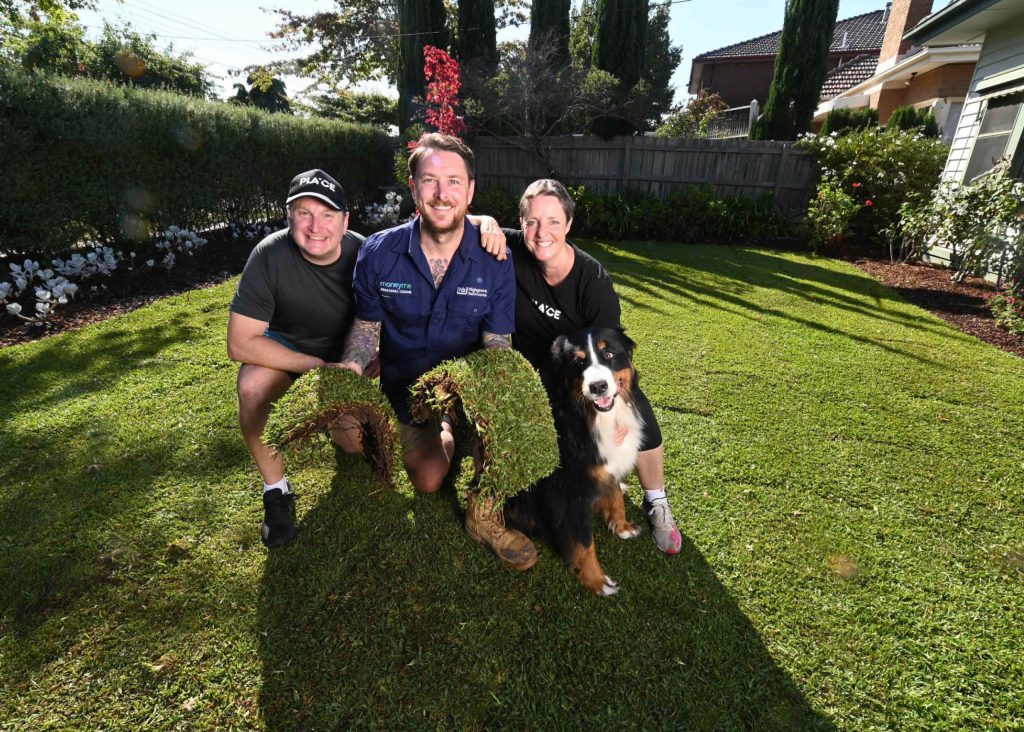 According to Aaron the finished job was amazing the Palmetto Buffalo “… has come up really well and added value to our home which is fantastic”.
According to Aaron the finished job was amazing the Palmetto Buffalo “… has come up really well and added value to our home which is fantastic”.
“Having a nice lawn was important to us for many reasons – it looks gorgeous, it’s the perfect surface for our family and it helps add value to our home,” Aaron said.
And according to our real estate agent Bronwyn, “… as I mentioned before first impressions really matter and looking at the finished job you can see what a difference it has made”.
“The new turf has increased the saleability of the house and dramatically increased its value,” Bronwyn stressed.
BUDGET (estimated):
Palmetto Buffalo 100m2 $1500
($15/m2)
Delivery $100
HIRE:
Sod cutter $150
Rotary Hoe $150
Bin (to remove old lawn) $300
Topsoil
(local topsoil with organic matter)
3.5m3 = 100m2 x 0.035 (35mm) $211 (+delivery)
LawnPride’s TruGyp Gypsum (1kg/m2) = 100kg
$49.50/22.7kg (4 bags) =$205
Organic Fertiliser Terralift TX10
100m2 20kg = $104.50
(this will do you for many more fertilising jobs as well so a good investment)
LawnPride’s Under Turf Starter & Water Crystals
100m2 4kg bucket =$46.20
TOTAL $2767
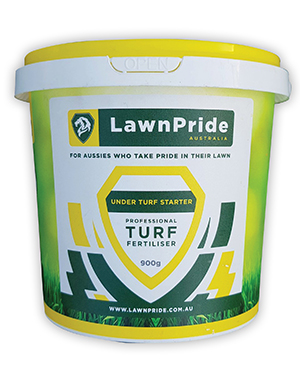
myhomeTURF recommends Under Turf Starter uses slow-release technology that will feed your newly laid lawn for up to three months. It is boosted with water crystals to aid in the reduction of moisture loss. Always read the safety directions and instructions on the product label before use.
SHOP NOW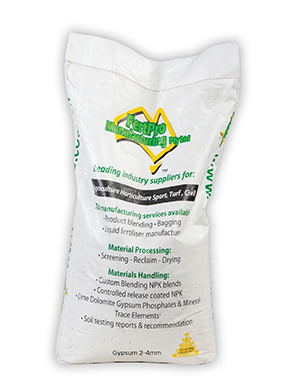
Granular Gypsum Coarse Grade 2-4mm 25kg is a top of the range Soil Amendment suitable for Zoysia, Kikuyu, Couch and Buffalo grasses. The product has the active ingredient of Gypsum (Calcium sulfate) and should be applied at an application rate of 5Kg-10Kg/100sqm. As with all lawn products please read the label on the Granular Gypsum Coarse Grade 2-4mm 25kg product first before applying.
SHOP NOWSign up for our Newsletter to receive your free guide.
